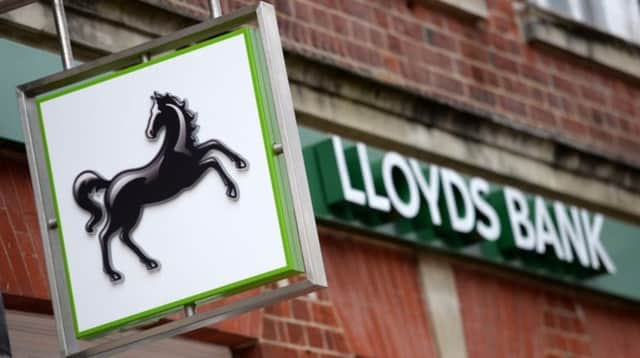Lloyds and RBS results set to highlight differing fortunes


Lloyds will post its figures on Thursday as it edges ever-closer to being fully returned to private hands, with the Government stake being cut to below 2% earlier this month and the City expecting the holding to be sold off in its entirety by June.
The lender enjoyed a robust 2016, posting its highest annual profits for a decade, with bottom-line profits more than doubling to £4.24 billion from £1.64bn in 2015.
Advertisement
Hide AdAdvertisement
Hide AdAnalysts at UBS expect Lloyds to have enjoyed a solid start to the new year, forecasting pre-tax profits to have nearly doubled once again in the first quarter, to £1.21bn from £654m a year earlier.
But the vast improvement is largely due to the absence of last year’s hefty £790m charge from its controversial move to buy back expensive bonds from investors.
On an underlying basis, UBS is pencilling in a 6% fall in quarterly profits to £1.94bn.
Lloyds has also recently announced an extra £350m to cover mis-sold payment protection insurance (PPI) claims, which will come off its first-quarter bottom line, while earlier this month it put aside £100m to cover compensation for victims of fraud at the hands of former HBOS staff.
Advertisement
Hide AdAdvertisement
Hide AdUBS said the wider economy’s prospects will be of key interest for Lloyds, given its role as a major mortgage lender, adding that another focus will be succession planning for boss Antonio Horta-Osorio.
Speculation is mounting in the City that the Portuguese banker will look to leave Lloyds once the Government sells out, with the top job at HSBC tipped as a possible next move.
Part-nationalised rival RBS follows with its results on Friday, in the wake of Chancellor Philip Hammond’s stark admission that the Government is prepared to sell its stake at a loss to the public purse.